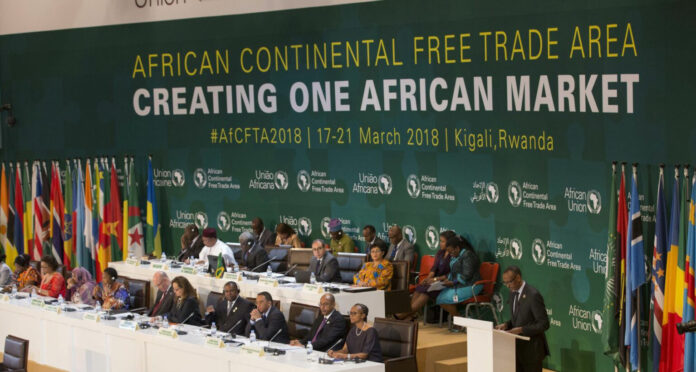South Africa’s trade landscape is shifting beneath our feet. The recent wave of tariffs from the US on South African exports has exposed long-standing weaknesses in our economy – weaknesses that fall hardest on black-owned businesses.
These developments are not just a policy concern. They are a direct threat to the future of inclusive economic growth.
For too long, South Africa has relied on a narrow range of trade relationships. The US, Europe and a handful of global blocs have dominated our exports for decades. These ties have helped fuel growth, but they have also created a dangerous dependency. When political winds change or trade disputes erupt – as we are seeing now – South African businesses are left scrambling.
The new US tariffs, in some cases exceeding 30%, target critical agricultural exports. Larger companies may be able to weather the storm. But black-owned small and medium-sized enterprises (SMEs), which often lack access to capital, strong institutional networks and support, face a far steeper uphill battle.
These businesses are more exposed to sudden shocks. When markets are cut off or trade becomes unaffordable, revenue dries up, workers are laid off, and dreams of upward mobility are put on hold. This is why export diversification is no longer a luxury. It is an urgent necessity.
South Africa must move beyond old patterns of trade and open up new opportunities in emerging markets. Black-owned businesses, in particular, need access to a broader and more resilient set of export destinations if they are to thrive in a rapidly changing global economy.
Diversification does not mean turning away from the US or Europe. It means balancing those relationships with new partnerships across Africa, Asia, Latin America and within the Brics bloc.
Many of these regions are rapidly growing, increasingly open to trade, and hungry for the kind of value-added products and services that South Africa can offer.
These markets are no longer on the periphery; they are central to the future of global trade.
The African Continental Free Trade Area offers a major opening. It gives black-owned businesses the chance to scale within the continent by tapping into underutilised intra-African markets. This agreement creates a single market of over one billion people, reducing tariffs and harmonising regulations. Yet many black entrepreneurs still face hurdles in accessing these opportunities – from bureaucratic red tape to poor logistics and lack of information.
Businesses need to understand regulatory frameworks, product standards, shipping logistics and customer preferences in new regions. They need to move from exporting raw materials to creating value-added goods and services. This shift requires investment in innovation, skills and networks. And it means unlocking finance.
Export growth often demands upfront capital, yet many black-owned SMEs are locked out of mainstream financial systems. We must also confront the broader structural issues that hold back Africa’s economic potential – starting with the failures of regional integration.
Africa’s regional economic communities – such as Ecowas, Comesa, AMU and SADC – were created to strengthen economic ties, harmonise trade policies and promote regional development.
Decades later, intra-African trade remains below 15%. These institutions often lack the authority, coordination and urgency needed to deliver results. Worse still, they rarely include black entrepreneurs in decision-making. Instead, what we often see is political theatre.
African leaders continue to jet off to capitals like Washington, Beijing and Paris, striking economic deals that frequently benefit foreign investors more than local businesses. These deals sometimes result in debt, resource concessions or trade terms that leave South Africa and other African nations at a disadvantage. We need a reset.
At the Black Business League, we are working to make this shift happen. We are advocating for policies that promote export diversification and address the barriers that black-owned businesses face. We are investing in training and mentorship to prepare entrepreneurs for international markets. And we are holding leaders accountable for economic decisions that affect public assets and long-term sovereignty.
South Africa cannot build a stronger, more inclusive economy by repeating the patterns of the past. We must reimagine our place in the global economy – and that vision must be led by those who have historically been excluded. Black-owned businesses cannot afford to be passive players in this transformation. The time for talk is over. The time for action is now.
- Shongwe is a director of the Black Business League, a national chamber dedicated to the advancement of black-owned enterprises. He focuses on trade justice, entrepreneurship and economic development



